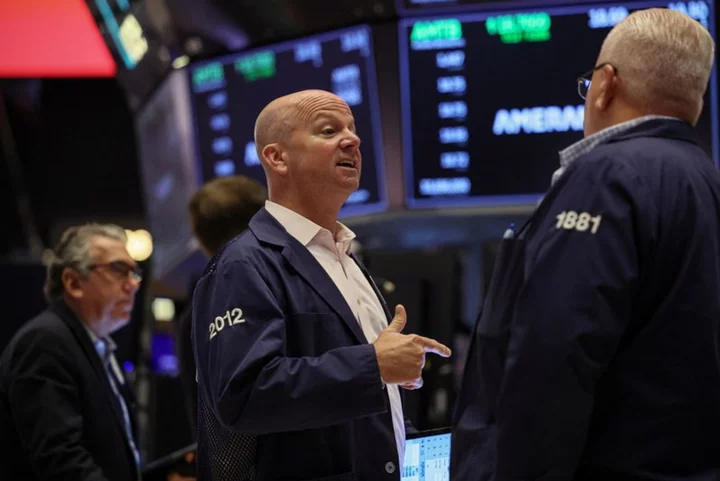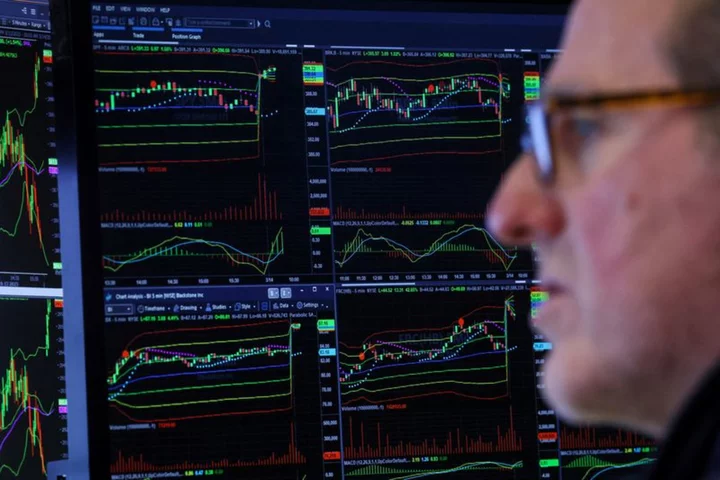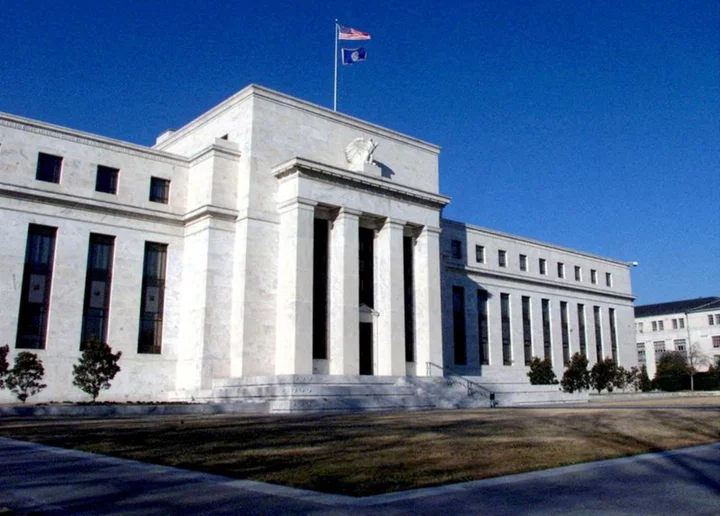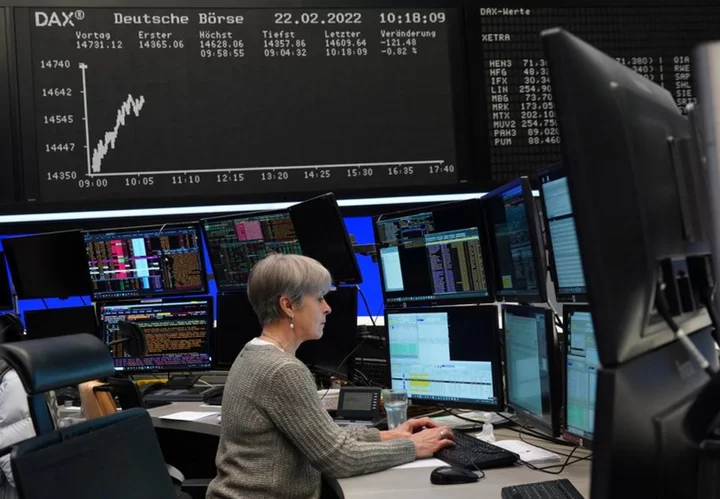Environmental, social and corporate governance, or ESG, investing is on a downward spiral.
Mentions of ESG in company statements and earnings calls have declined significantly since their 2021 peak and BlackRock CEO Larry Fink, an early leader in the adoption of ESG standards, decided to banish the term from his vocabulary, saying it has become too political.
The numbers speak for themselves. The cumulative flow of investments into US ESG funds has been flat to slightly negative since the first quarter of 2022, according to data shared exclusively with CNN by Lipper, a financial data provider.
What's happening: "The US really tells the story of the sharp rise in ESG investing commencing shortly after the market recovered from the initial pandemic sell-off in 2020, only to take on near meme-stock status in the YOLO (you only live once) 2021, work-from-home bull market, then crescendo at the end of 2021," said Robert Jenkins, head of global research at Lipper.
But in 2022, the pace of inflows quickly eased as a confluence of political, geopolitical and market events severely damaged interest in ESG investing.
Russia's ongoing war in Ukraine forced traders to reconsider investing in energy and weapons stocks again.
Increased scrutiny by politicians in red states also played into political differences around ESG.
At least 165 bills and resolutions against ESG investment criteria were introduced in 37, mostly red, states between January and June 2023, according to a recent report from Pleiades Strategy, a climate risk consulting firm.
On top of that turmoil, responsible investing funds faced mighty economic headwinds last year. These funds' outsized investments in tech stocks and lack of energy stocks (which was the only positive sector in 2022), led to noticeable losses last year.
Still, Jenkins says the downturn may ultimately be a good thing. The concept, he said, had become a fad without much substance or meaning.
ESG investing took off and became a buzzword — the "artificial intelligence of six years ago," said Jenkins. "Every single conversation was about ESG, and there's a whole industry built around this," he said. There were companies built on selling ESG information, ESG-related conferences "and it got worn out."
Jenkins says that he's hated the term ESG for years, and so have others in the space. Combining three separate components — environmental, social, and governance — into one rubric is unwieldy and simplifies a complicated investment strategy, he said.
What's next: Going forward, usage of the term ESG will likely continue to wane, says Jenkins. Instead, specific terms such as climate, transition and transparency will begin being used more often.
These terms, which are vague and don't have specific measurement systems attached to them, could mean less clarity for investors looking to put their money in responsible investments. Still, Jenkins has hope that "more focused, thematic metrics can enable investors to target specific impact areas and have a better assurance that their money is actually going to benefit the desired outcome."
Big tech earnings begin
Google-parent Alphabet, Microsoft and Snap released second quarter earnings after the market close on Tuesday to mixed results, report my colleagues Clare Duffy and Catherine Thorbecke
Alphabet reported strong revenue growth for the quarter ending in June, as its cloud computing business grows and its core digital advertising business stabilizes.
Alphabet reported revenue of $74.6 billion, marking a 7% jump compared to last year and beating Wall Street's estimates. The company also reported net profit of $18.4 billion, also beating analysts' estimates.
Shares of Alphabet surged more than 6% in after-hours trading following the results.
The strong results could give Google more "room to focus" on "its expansion in the AI field," Thomas Monteiro, a senior analyst at Investing.com, said in a note Thursday evening.
Microsoft also reported stronger-than-expected growth, but investors weren't as cheerful about it. Shares of the tech titan fell by about 1% in after hours trading.
That's likely because sales from the company's "more personal computing" unit, which includes devices, Xbox and Windows commercial products, decreased 4% year-over-year to $13.9 billion, which could indicate that economic uncertainty is weighing on hardware sales.
Still, the company posted $56.2 billion in revenue, up 8% from the prior year, and ahead of the $55.5 billion Wall Street analysts had projected. Net income for the quarter was $20.1 billion, up 20% year-over-year and also better than expected.
Sales from Microsoft's "intelligent cloud" business — its biggest revenue driver — grew 15% from the year-ago quarter to $24 billion.
Snap, meanwhile, reported a steep loss and its second ever decline in sales.
Snap posted a net loss of $377 million from the June quarter, an improvement from its $422 million net loss during the year-ago period but worse than the $66 million loss Wall Street analysts had projected.
Sales also fell nearly 4% from the prior year to $1.07 billion, its second consecutive decline in quarterly sales.
Snap warned that its sales could decline for a third consecutive quarter in the September quarter. Snap said it expects revenue between $1.07 billion and $1.13 billion for the September quarter, which could mark up to a 5% decline from the same period in the prior year.
Shares of Snap were down nearly 18% in after hours trading.
Nearly 25% of S&P 500 companies have now published Q2 results, and just under 79% of those that have reported reporters have exceeded consensus EPS expectations, better than the 77% five-year average, according to FactSet data.
More regional bank trouble
Regional banking turmoil is once again rearing its ugly head. This time PacWest Bancorp announced on Tuesday ahead of its second-quarter earnings results, that it will merge with Banc of California in a $400 million equity deal.
Under the terms of the deal, both California-based banks will merge into one bank called Pacific Western Bank, reports my colleague Elisabeth Buchwald.
"The combined company will have the strength and market position to support the banking needs of small and medium-size businesses in California and to capitalize on the opportunities created for stronger financial institutions in the wake of the recent banking industry turmoil," said Jared Wolff, president and CEO of Banc of California, in a statement. Wolff will continue to serve as president and CEO of the merged bank.
PacWest reported a $197.4 million loss in net income last quarter. The Beverly Hills-based bank also reported total deposits declined by $290 million to $27.9 billion. Banc of California reported a much smaller decline in net income of $2.4 million last quarter. Total deposits for the Santa Ana-based bank declined slightly from $7 billion to $6.9 billion.
PacWest has been under considerable pressure after Silicon Valley Bank failed in March, sending shock waves across regional banks in the United States.
PacWest stock closed down 27% on Tuesday following early reports from The Wall Street Journal of the deal. However, it was up 30% in after-hours trading. Once the deal closes, PacWest shareholders are set to receive 0.66 of a share of Banc of California for each share they own.
Meanwhile, Banc of California closed 11% higher. The stock was up around 10% in after-hours trading.









